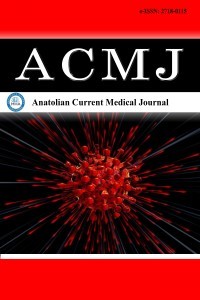1.
Duan P, Sun L, Kou K, Li XR, Zhang P. Surgical techniques to prevent delayed gastric emptying after pancreaticoduodenectomy. Hepatobiliary Pancreat Dis Int. 2024;23(5):449-457. doi:10.1016/j.hbpd.2023.11.001
2.
Giuliani T, Marchegiani G, Di Gioia A, et al. Patterns of mortality after pancreatoduodenectomy: a root cause, day-to-day analysis. Surgery. 2022;172(1):329-335. doi:10.1016/j.surg.2022.01.005
3.
Merath K, Mehta R, Tsilimigras DI, et al. In-hospital mortality following pancreatoduodenectomy: a comprehensive analysis. J Gastrointest Surg. 2020;24(5):1119-1126. doi:10.1007/s11605-019-04307-9
4.
Liu Z, Hayashi H, Matsumura K, et al. Biological and clinical impacts of glucose metabolism in pancreatic ductal adenocarcinoma. Cancers (Basel). 2023;15(2):498-511. doi:10.3390/cancers15020498
5.
Funamizu N, Nakabayashi Y, Iida T, Kurihara K. Geriatric nutritional risk index predicts surgical site infection after pancreaticoduodenectomy. Mol Clin Oncol. 2018;9(3):274-278. doi:10.3892/mco.2018.1671
6.
Kitahara H, Shoji F, Akamine T, et al. Preoperative prognostic nutritional index level is associated with tumour-infiltrating lymphocyte status in patients with surgically resected lung squamous cell carcinoma. Eur J Cardiothorac Surg. 2021;60(2):393-401. doi:10.1093/ejcts/ezab046
7.
Lin JX, Tang YH, Wang JB, et al. Blood parameters score predicts long-term outcomes in stage II-III gastric cancer patients. World J Gastroenterol. 2019;25(41):6258-6272. doi:10.3748/wjg.v25.i41.6258
8.
Clavien PA, Sanabria JR, Strasberg SM. Proposed classification of complications of surgery with examples of utility in cholecystectomy. Surgery. 1992;111(5):518-526.
9.
Clark AL, Sze S. Impact of malnutrition using geriatric nutritional risk index in heart failure with preserved ejection fraction. JACC Heart Fail. 2019;7(8):676-677. doi:10.1016/j.jchf.2019.06.002
10.
Bouillanne O, Morineau G, Dupont C, et al. Geriatric nutritional risk index: a new index for evaluating at-risk elderly medical patients. Am J Clin Nutr. 2005;82(4):777-783. doi:10.1093/ajcn/82.4.777
11.
Shoji F, Matsubara T, Kozuma Y, et al. Preoperative geriatric nutritional risk index: a predictive and prognostic factor in patients with pathological stage I non-small cell lung cancer. Surg Oncol. 2017;26(4): 483-488. doi:10.1016/j.suronc.2017.09.006
12.
Dale W, Hemmerich J, Kamm A, et al. Geriatric assessment improves prediction of surgical outcomes in older adults undergoing pancreaticoduodenectomy: a prospective cohort study. Ann Surg. 2014; 259(5):960-965. doi:10.1097/SLA.0000000000000226
13.
Ito Y, Kenmochi T, Irino T, et al. The impact of surgical outcome after pancreaticoduodenectomy in elderly patients. World J Surg Oncol. 2011; 11(9):102. doi:10.1186/1477-7819-9-102
14.
Pratt WB, Gangavati A, Agarwal K, et al. Establishing standards of quality for elderly patients undergoing pancreatic resection. Arch Surg. 2009;144(10):950-956. doi:10.1001/archsurg.2009.107
15.
Pineño-Flores C, Ambrona-Zafra D, Rodríguez-Pino JC, et al. Cephalic pancreaticoduodenectomy for ductal adenocarcinoma in the elderly. Can we do it safely? Cir Esp (Engl Ed). 2022;100(3):125-132. doi:10.1016/j.cireng.2022.02.011
16.
Beattie AH, Prach AT, Baxter JP, Pennington CR. A randomised controlled trial evaluating the use of enteral nutritional supplements postoperatively in malnourished surgical patients. Gut. 2000;46(6):813-818. doi:10.1136/gut.46.6.813
17.
Huang Y, Chen Y, Wei L, Hu Y, Huang L. Comparison of three malnutrition risk screening tools in identifying malnutrition according to Global leadership initiative on malnutrition criteria in gastrointestinal cancer. Front Nutr. 2022;9:959038. doi:10.3389/fnut.2022.959038
18.
Reece L, Hogan S, Allman-Farinelli M, Carey S. Oral nutrition interventions in patients undergoing gastrointestinal surgery for cancer: a systematic literature review. Support Care Cancer. 2020;28(12):5673-5691. doi:10.1007/s00520-020-05673-w
19.
Kim E, Kang JS, Han Y, et al. Influence of preoperative nutritional status on clinical outcomes after pancreatoduodenectomy. HPB (Oxford). 2018;20(11):1051-1061. doi:10.1016/j.hpb.2018.05.004
20.
Yamamoto M, Kawaguchi Y, Ichida A, et al. Evaluation of preoperative nutritional variables to predict postoperative complications after pancreaticoduodenectomy. Nutrition. 2019;67-68S:100006. doi:10.1016/ j.nutx.2020.100006
21.
Kanda M, Fujii T, Kodera Y, Nagai S, Takeda S, Nakao A. Nutritional predictors of postoperative outcome in pancreatic cancer. Br J Surg. 2011;98(2):268-274. doi:10.1002/bjs.7305
22.
Gibbs J, Cull W, Henderson W, Daley J, Hur K, Khuri SF. Preoperative serum albumin level as a predictor of operative mortality and morbidity: results from the National VA surgical risk study. Arch Surg. 1999;134(1): 36-42. doi: 10.1001/archsurg.134.1.36.
23.
Augustin T, Burstein MD, Schneider EB, et al. Frailty predicts risk of life-threatening complications and mortality after pancreatic resections. Surgery. 2016;160(4):987-996. doi:10.1016/j.surg.2016.07.010
24.
Imaoka H, Mizuno N, Hara K, et al. Evaluation of modified glasgow prognostic score for pancreatic cancer: a retrospective cohort study. Pancreas. 2016;45(2):211-217. doi:10.1097/MPA.0000000000000446

